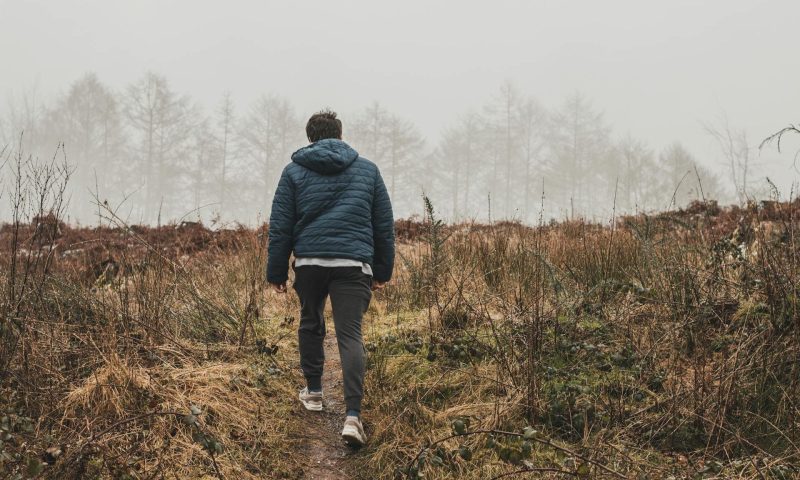Building muscle goes beyond just lifting weights; it is also about paying attention to nutrition and rest. But what about that occasional drink? As a nutritionist, many of my clients have expressed concerns about alcohol intake while trying to lose weight or build muscle. Like them, you might be wondering, “Does alcohol affect muscle growth?”
The short answer is, yes, it does. However, the real answer is more complicated than a simple yes or no. Alcohol can interfere with muscle development, but the extent of its impact depends on a few key factors, like how much you drink, when you drink it, and how often.
In this guide, we will break down the science behind alcohol’s effect on muscle growth and offer tips to help balance your social life with your training goals. Keep reading to find out more!
Does alcohol affect muscle growth?

Consuming alcohol can have several detrimental effects on muscle growth. One major concern is its impact on muscle protein synthesis, the process through which the body repairs and builds muscle fibers. Alcohol disrupts this process by hindering the signaling pathways necessary for muscle repair. This hindrance leads to slow muscle recovery and reduces overall muscle gains.
Research shows that alcohol can also disrupt hormone balance, particularly by lowering testosterone, a hormone crucial for muscle development. Additionally, alcohol leads to increased fluid loss and subsequent dehydration, which can cause muscle cramps, strain, and reduced overall performance. This slows down progress and makes it harder for your muscles to recover and grow.
Does drinking alcohol before or after workouts impact growth?

Generally, alcohol acts as a depressant; it slows down reaction time and impairs motor function. It would affect strength, coordination, and endurance, leading to an increased risk of injury, especially during intense training sessions. When you drink alcohol before a workout, the real danger is the risk to your safety and well-being.
Drinking alcohol after a workout can also be detrimental since that time is crucial for muscle recovery. Allowing your body to fully recover without the interference of alcohol ensures that the muscle repair processes function effectively, leading to better gains and performance.
A study published by the National Library of Medicine concludes that “alcohol ingestion suppresses the anabolic response in skeletal muscle and may therefore impair recovery and adaptation to training and/or subsequent performance.”
To optimize muscle growth and recovery, it is best to avoid alcohol consumption immediately before and after workouts.
Should you avoid alcohol altogether while gaining?

Completely abstaining from alcohol is not necessary; however, it is better to minimize the intake for optimal muscle growth. There is evidence to show that moderate drinking of alcohol does not impair muscle growth. However, frequent or excessive drinking can lead to metabolic disruptions and slow muscle gain.
Athletes and bodybuilders who prioritize maximum muscle gain often limit alcohol intake to only special occasions or generally consume lower-alcohol beverages in moderation. Balancing the intake with proper nutrition, hydration, and training can help minimize the negative effects without stopping you from making progress with your muscle-building goals.
Tips for enjoying alcohol while maximizing results

Sometimes, you just want to unwind with a drink. Whether it is a weekend hangout or just a quiet evening by yourself, alcohol can have its place without derailing your progress. Here are some tips to help you enjoy it while still on track to maximum results:
- Drink moderately: It is best to stick to light or moderate consumption to prevent negative effects on your muscle growth.
- Hydrate properly: Alcohol dehydrates the body, so drink plenty of water before, during, and after consuming alcohol.
- The right timing: Try to avoid drinking just before or after workouts to prevent impairing your performance and recovery.
- Prioritize protein: Consuming enough protein can help support muscle repair, especially on days you drink.
- Get enough sleep: The importance of sleep cannot be overemphasized. Alcohol disrupts sleep cycles, so give adequate time for quality rest.
Other advice for optimal muscle growth

Try progressive overload
Whether you are a beginner or an advanced lifter, consistently applying progressive overload is one of the best ways to fuel real gains. This simply means pushing your body a little harder over time — lifting slightly heavier weights, squeezing out an extra rep, or increasing the intensity in some way. Your muscles grow in response to stress, and if you keep challenging them just enough, they adapt by getting stronger and bigger.
Embrace recovery days
You may be tempted to train every day, but you shouldn’t because your muscles need rest and recovery to grow. Take days off each week to give your body time to recover.
Manage stress properly
High stress levels can raise cortisol, a hormone that breaks down muscle tissue and makes recovery hard. Incorporating relaxation techniques like mindfulness and deep breathing can help keep stress in check and support your fitness goals.
Frequently asked questions

Do any bodybuilders drink alcohol?
Some bodybuilders consume alcohol in moderation, but most avoid excessive drinking because of its negative effects on muscle recovery, hormone levels, and performance. Competitive bodybuilders typically abstain completely during their cutting phases to keep their body composition in top form.
Will I gain more muscle if I quit drinking?
Eliminating alcohol can enhance muscle growth by improving protein synthesis, hormone regulation, and sleep quality. Many athletes report better recovery, increased energy levels, and improved workout performance after reducing or quitting alcohol.
Can you get ripped and still drink alcohol?
Achieving a ripped physique while consuming alcohol is possible, but you need moderation. If you drink occasionally, you can still get some muscle definition with proper nutrition, hydration, and training. However, frequent alcohol consumption can slow fat loss and muscle gain, making it harder to become shredded.




